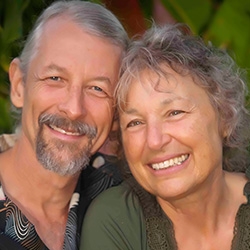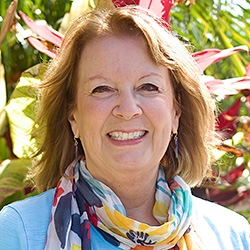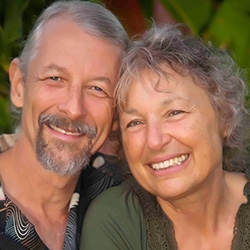

NVC Resources on Relationships
-
Listen to this captivating story by Leo Sofer. A strong blacksmith comes to the aid of a little girl when she needs protecting. But can he protect her from the harsh words she speaks to herself inside her head?
-
In this audio recording, Veteran CNVC Certified Trainer, Sylvia Haskvitz uses real-life situations to help us find more natural expressions of what is harmony with our hearts.
-
CNVC Certified Trainer Shantigarbha Warren offers a report of his recent NVC training trip to Israel/Palestine, India and Sri Lanka and clarifies how NVC can support social change in three very different contexts. Included is an exercise, based on Gandhi’s teaching.
-
CNVC Certified Trainer Miki Kashtan talks with radio show host Hollis Polk about strategies for communicating with family members whose political views oppose our own.
-
CNVC Certified Trainers Jim and Jori Manske show you how to tune into the "Gratitude Channel," sharing exercises and practices to hone your awareness toward gratitude.
-
Join CNVC Certified Trainer Mary Mackenzie to learn a few of her tried-and-true simple Self-Empathy techniques, especially focused on the challenges of the holiday season.
-
Jim leads a self-connection exercise focused on how our lives are interwoven with people we love, acquaintances, people unknown to us, and even those who have come before us or will come after us.
-
In this brief audio snippet, CNVC Certified Trainer and founder of the CNVC Parenting Project, Inbal Kashtan, offers a profound insight that can change how we see and relate to our children.
-
In this brief audio snippet, CNVC Certified Trainer and founder of the CNVC Parenting Project, Inbal Kashtan, explores observation in contrast to interpretation, and leads an exercise in observation skills.
-
CNVC Certified Trainer Miki Kashtan helps a man whose ex-spouse reacted strongly to his attempt at empathizing with her. Miki shows us how it’s possible to hide behind our empathic expression, creating less rather than more connection. She suggests instead that we be vulnerably authentic.

Quick Links
Subscription Preferences
Stay In Touch!
Looking for ways to keep up with NVC Academy news, get special offers, free resources, or words of inspiration? Here are five ways to stay engaged:








